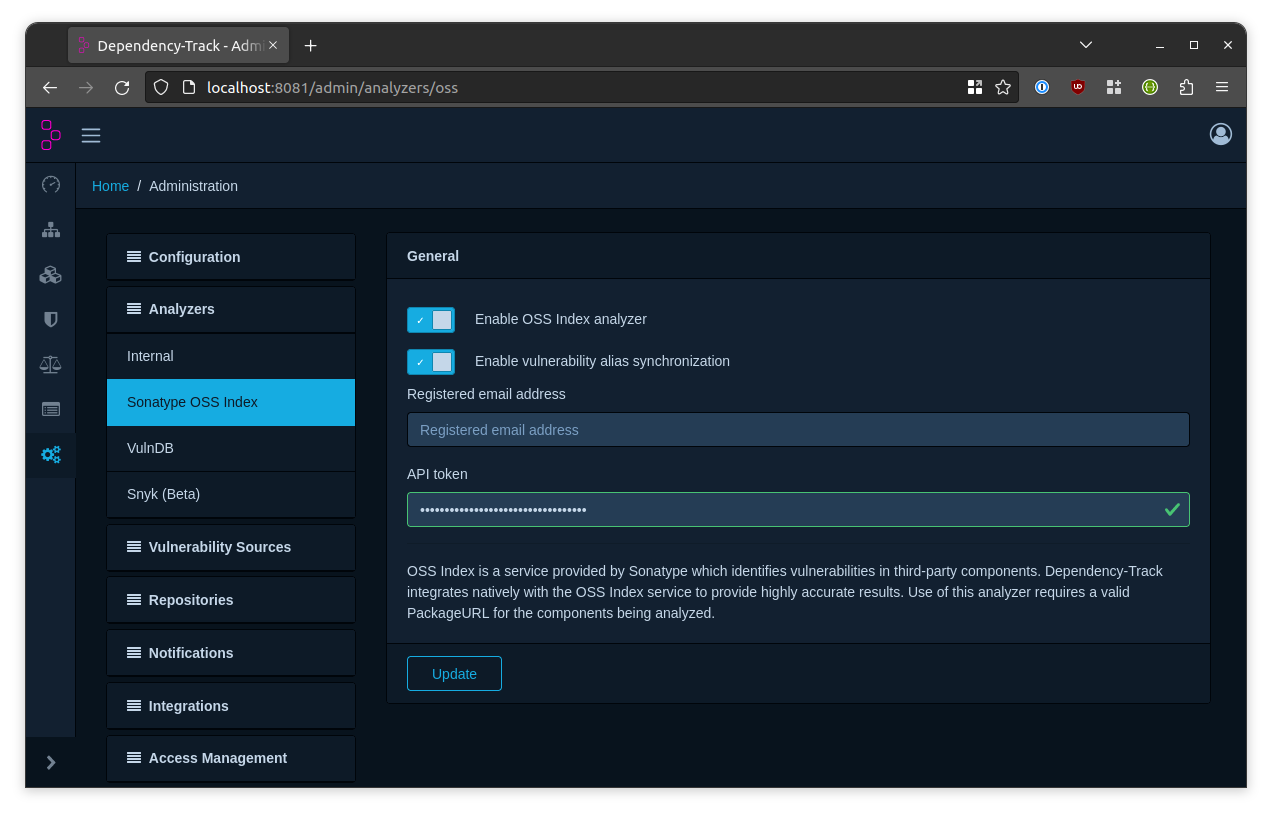Sonatype OSS Index provides transparent and highly accurate results for components with valid Package URLs. The majority of vulnerabilities identified by OSS Index directly map to CVEs in the National Vulnerability Database (NVD). However, OSS Index additionally includes Sonatype’s proprietary vulnerability intelligence data, for which CVEs may not exist.
Dependency-Track integrates with OSS Index using its public API. Dependency-Track does not mirror OSS Index entirely, but it does consume vulnerabilities on a ‘as-identified’ basis.
The OSS Index integration is enabled by default and does not require an account for its basic functionality.
Authentication #
Unauthenticated usage of OSS Index is subject to stricter rate limiting and does not grant access to Sonatype’s proprietary vulnerability intelligence data. When rate limiting becomes an issue, or access to the proprietary data is desired, register a free account and configure the API credentials in Dependency-Track’s administration panel.

Vulnerabilities from the proprietary dataset have their IDs prefixed with sonatpye-, and their source labeled as OSSINDEX.

May 2022 Update #
Previously, authentication was only required for an extended rate limiting budget. Up to this point, vulnerabilities in
the OSS Index dataset that did not map to CVEs were identified by random UUIDs (e.g. ae0cc4d7-fafe-4970-87e3-f8956039645a).
In May 2022, Sonatype announced major changes to OSS Index.
Beside improvements in data quality and update frequencies, vulnerability IDs changed from random UUIDs to
a more CVE-like structure (e.g. sonatype-2022-4402).
Dependency-Track users who had OSS Index enabled before May 2022 may still have vulnerabilities with the old naming scheme in their portfolio.
 v4.13
v4.13